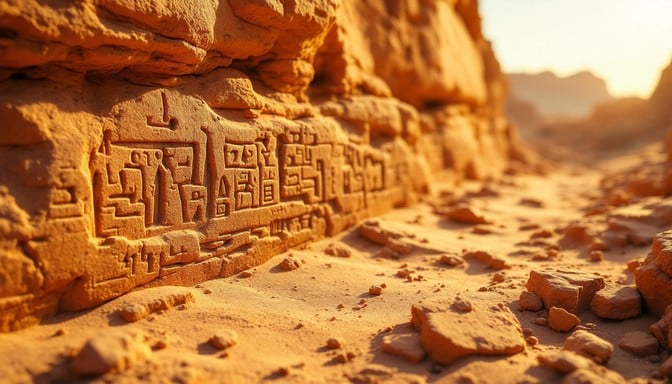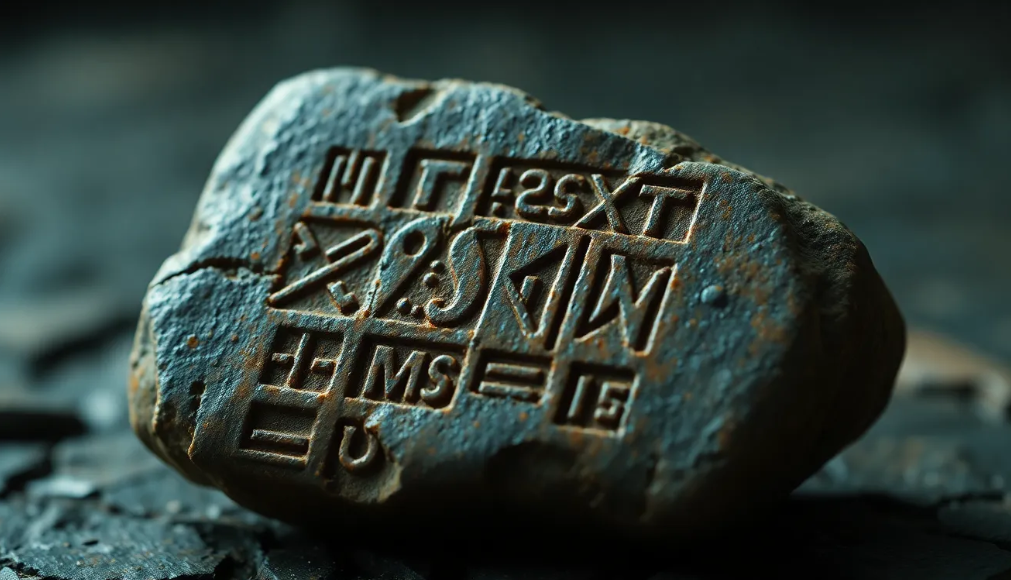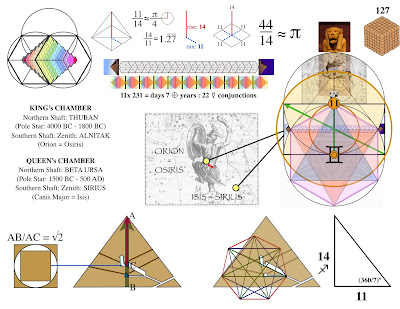Some researchers suggest that this city could have been in Andalusia, beyond the Strait of Gibraltar. Atlantis, a legendary city submerged in the ocean, has fascinated explorers, archaeologists and history for centuries. First mentioned by the Greek philosopher Plato in his dialogues, it has been the subject of numerous theories and speculations. Although the exact location of Atlantis remains unknown, some researchers suggest that it may have been in the Andalusia region of southern Spain. We explore the theories and evidence supporting this exciting hypothesis.
Plato’s account
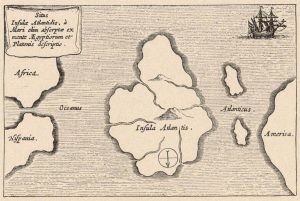 The first mention of Atlantis is found in Plato’s ‘Dialogues’, where he describes an advanced civilization that existed thousands of years ago. According to Plato, Atlantis was located “beyond the Pillars of Hercules,” a reference commonly interpreted as the Strait of Gibraltar. Furthermore, Atlantis is said to have been a maritime and commercial power that dominated much of the known world at the time. However, Plato’s account is largely a moral and political allegory, making it difficult to interpret literally.
The first mention of Atlantis is found in Plato’s ‘Dialogues’, where he describes an advanced civilization that existed thousands of years ago. According to Plato, Atlantis was located “beyond the Pillars of Hercules,” a reference commonly interpreted as the Strait of Gibraltar. Furthermore, Atlantis is said to have been a maritime and commercial power that dominated much of the known world at the time. However, Plato’s account is largely a moral and political allegory, making it difficult to interpret literally.
Geographical and geological coincidences
One of the arguments suggesting a possible location of Atlantis in Andalusia is based on geographical and geological coincidences. The region has a number of features that resemble Plato’s description. The Strait of Gibraltar, for example, could be considered the “Pillars of Hercules”. In addition, there is evidence of geological changes and tidal waves in the region in ancient times, which could have contributed to the supposed disappearance of the city.
Archaeological evidence
Although there is no direct archaeological evidence to support the theory that Atlantis was in Andalusia, there are certain findings that fuel speculation. For example, remains of very ancient cities and Phoenician or Tartessian settlements have been discovered on the southern coast of Spain, dating from centuries after Atlantis, which could cause confusion in inexperienced archaeologists, if we take for granted the assertion that Atlantis existed. These discoveries indicate the presence of advanced civilizations in the region, which could suggest a possible connection with the mythical lost city (although it is more likely that they are pre-Iberian peoples).
Local legends and myths
Another source of evidence comes from local legends and myths passed down through the centuries in Andalusia. Some oral traditions refer to a submerged city at the bottom of the sea that resembles the description of Atlantis. These stories, passed down from generation to generation, have aroused the interest of researchers and explorers seeking to discover the truth behind them.
In addition, some argue that the Phoenician cultural influence in the region could be related to Atlantis. The Phoenicians were skilled navigators and traders who established colonies on the Mediterranean and Atlantic coasts. It is believed that they had an advanced knowledge of navigation and maritime exploration that could have allowed them to discover and establish settlements in remote places, leaving archaeological remains that could be mistakenly pointed out as Atlantis.
However, it is important to keep in mind that these theories are mainly speculative and lack concrete evidence. Atlantis remains an unsolved enigma and its exact location may never be discovered.
Something should not be overlooked: this type of discoveries, more sensationalist than real, should always be accompanied and supported by official bodies such as Heritage or the University, otherwise everything remains just another attempt to place Atlantis beyond the academic limits where it is still a myth without archaeological remains and only a mention in Plato’s dialogues. This may not be to our liking, but it is the reality.
The fascination with Atlantis has led to numerous expeditions and research all over the world, including the region of Andalusia. Technological advances in underwater exploration have made it possible to investigate maritime areas in greater detail in search of archaeological remains that may corroborate these theories. However, so far, no conclusive evidence has been found to support the hypothesis that Atlantis was in Andalusia.
The theory that Atlantis may have been located in Andalusia is exciting and stirs the imagination of many. Geographical coincidences, archaeological findings and local legends are elements that feed this hypothesis. However, it is important to remember that there is no solid evidence to support this theory and that Atlantis remains an unsolved mystery. The search for Atlantis continues, but in the meantime, its exact location will continue to be the subject of speculation and debate in the world of archaeology and history.
Where could it have been located?
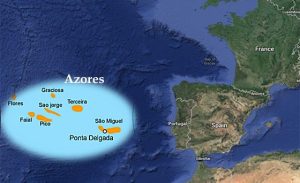
Talking to my good friend Eugenio Belgrano, he was telling me about the possibility that Atlantis was located on the island of Santorini. This has been a widely debated and discussed theory among archaeological experts and the scientific community. Although there is no conclusive evidence, some arguments support this hypothesis.
Santorini, also known as Thera in ancient times, is a volcanic island in the Aegean Sea off the coast of Greece. In the 17th century BC, one of the largest and most catastrophic volcanic eruptions recorded in human history took place. This eruption, known as the Minoan eruption, resulted in the destruction of an advanced civilization located on the island and caused the formation of a submerged volcanic caldera.
Plato’s description of Atlantis shares some similarities with the Santorini eruption and its devastating effects. Plato mentions that Atlantis was destroyed in a single day and night of catastrophic earthquakes and floods. The eruption of Santorini, with its destructive power and the formation of a large, submerged crater, may have inspired the legend of the destruction of Atlantis.
In addition, archaeological remains have been found on Santorini that indicate the existence of an ancient and sophisticated civilization. The ruins of the city of Akrotiri, which was buried under layers of volcanic ash during the Minoan eruption, reveal advanced architecture, elaborate frescoes and sophisticated urban planning. These discoveries suggest the presence of a thriving civilization on the island before the catastrophe.
However, it is important to note that there is no direct evidence linking Santorini to the Atlantis described by Plato. The lack of specific ancient documents or inscriptions about Atlantis makes it difficult to precisely identify its location. In addition, some researchers argue that Atlantis was a purely literary creation of Plato and not an actual civilization.
The theory that Atlantis was on the island of Santorini is interesting and has generated considerable debate in the archaeological community. The volcanic eruption of Santorini and the vestiges of an ancient, advanced civilization on the island have led to speculation about a possible connection. However, recent studies are showing that planet earth undergone a series of dramatic climate changes due to possible collisions with extraterrestrial asteroids or due to solar flares, Younger Dryas Impact Hypothesis. And the Amazon and the Sahara were not so empty after all… New patterns are being discovered and new solid evidence could be found to share the true location of the enigma of Atlantis.
Sources: ¿Pudo estar la Atlántida en Andalucía? Un enigma arqueológico que despierta la imaginación LINK

